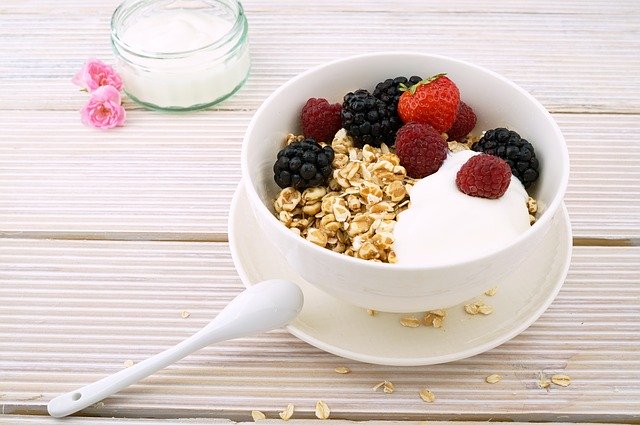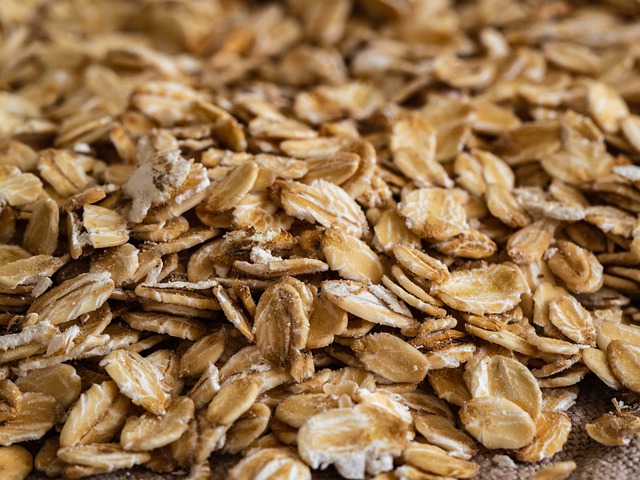Oatmeal is a near-universally beloved breakfast. Oats are one of the most nutritious and healthiest grains on earth. It has historically been enjoyed across Europe, Russia, and the U.S. However, oatmeal is rapidly gaining popularity in developing countries because of its affordability and its perceived health properties.
There are different types of oats depending on cultivation and processing. The healthy benefits of oats, depending on the kind we choose, are numerous. This article will go through some of the prominent health benefits of oats.
1. Highly nutritious
Oats are loaded with important vitamins, minerals, and antioxidant plant compounds. Half a cup (78 grams) of dry oats contains:
- Manganese: 191% of the RDI
- Phosphorus: 41% of the RDI
- Magnesium: 34% of the RDI
- Copper: 24% of the RDI
- Iron: 20% of the RDI
- Zinc: 20% of the RDI
- Folate: 11% of the RDI
- Vitamin B1 (thiamin): 39% of the RDI
- Vitamin B5 (pantothenic acid): 10% of the RDI
- Smaller amounts of calcium, potassium, vitamin B6 (pyridoxine) and vitamin B3 (niacin)
- 51 grams of carbs, 13 grams of protein, 5 grams of fat, and 8 grams of fiber.

2. Improves Blood Sugar Control
Oats may help lower blood sugar levels, especially in people who are overweight or have type 2 diabetes. It is a common disease, characterized by significantly elevated blood sugars. It usually results from decreased sensitivity to the hormone insulin.
These effects are mainly attributed to beta-glucan’s ability to form a thick gel that delays emptying of the stomach and absorption of glucose into the blood.
3. Helps to Lose Weight
Not only is oatmeal a delicious breakfast food, but it’s also very filling. Eating filling foods may help you eat fewer calories and lose weight. By delaying the time it takes your stomach to empty of food, the beta-glucan in oatmeal may increase your feeling of fullness.
Beta-glucan may also promote the release of peptide YY (PYY), a hormone that has been shown to lead to reduced calorie intake and may decrease your risk of obesity.
4. Lower Cholesterol Level
Many studies have shown that the beta-glucan fiber in oats is effective at reducing both total and LDL cholesterol levels. High blood cholesterol is considered as the leading factor of heart diseases.
Beta-glucan may increase the excretion of cholesterol-rich bile, thereby reducing circulating levels of cholesterol in the blood. Oxidation of LDL (the “bad”) cholesterol, which occurs when LDL reacts with free radicals, is another crucial step in the progression of heart disease.
5. Rich in Antioxidants
Whole oats are high in antioxidants, and beneficial plant compounds called polyphenols. Ferulic acid and avenanthramides are the most notable antioxidants that are found in oats.
Avenanthramides may help lower blood pressure levels by increasing the production of nitric oxide. This gas molecule helps dilate blood vessels and leads to better blood flow. In addition, avenanthramides have an anti-inflammatory and anti-itching effect.

6. Promotes Healthy Skin
You must have guessed this one, as oats can be found in numerous skincare products. Makers of these products often list finely ground oats as “colloidal oatmeal.” Oats have a long history of use in the treatment of itch and irritation in various skin conditions.
Oat-based skin products may improve uncomfortable symptoms of eczema. They are also used as an efficient face cleanser. However, skincare benefits pertain only to oats applied to the skin, not those that are eaten.
Caution:
- Make sure you are not allergic to oats before including it in your diet or skincare routine.
- There are several other benefits linked to oats but many of them are still in progress.
- If you are in any sort of medication, do not stop using them without your doctor’s consent.
- Remember including any natural product in your diet will not be a permanent solution. Overall healthy diet and workout are necessary for general well being.




![The Top & Most Popular Seafood Bucket Restaurants in Dubai for you [Never Miss]](https://uae24x7.com/wp-content/uploads/2020/09/8-seafood-in-a-bucket-scaled-e1600739237403.jpg)
![Procedures for Renewing the Driving License in Abu Dhabi [3 Simple Steps]](https://uae24x7.com/wp-content/uploads/2020/07/Capture-9-e1595666454466.jpg)





